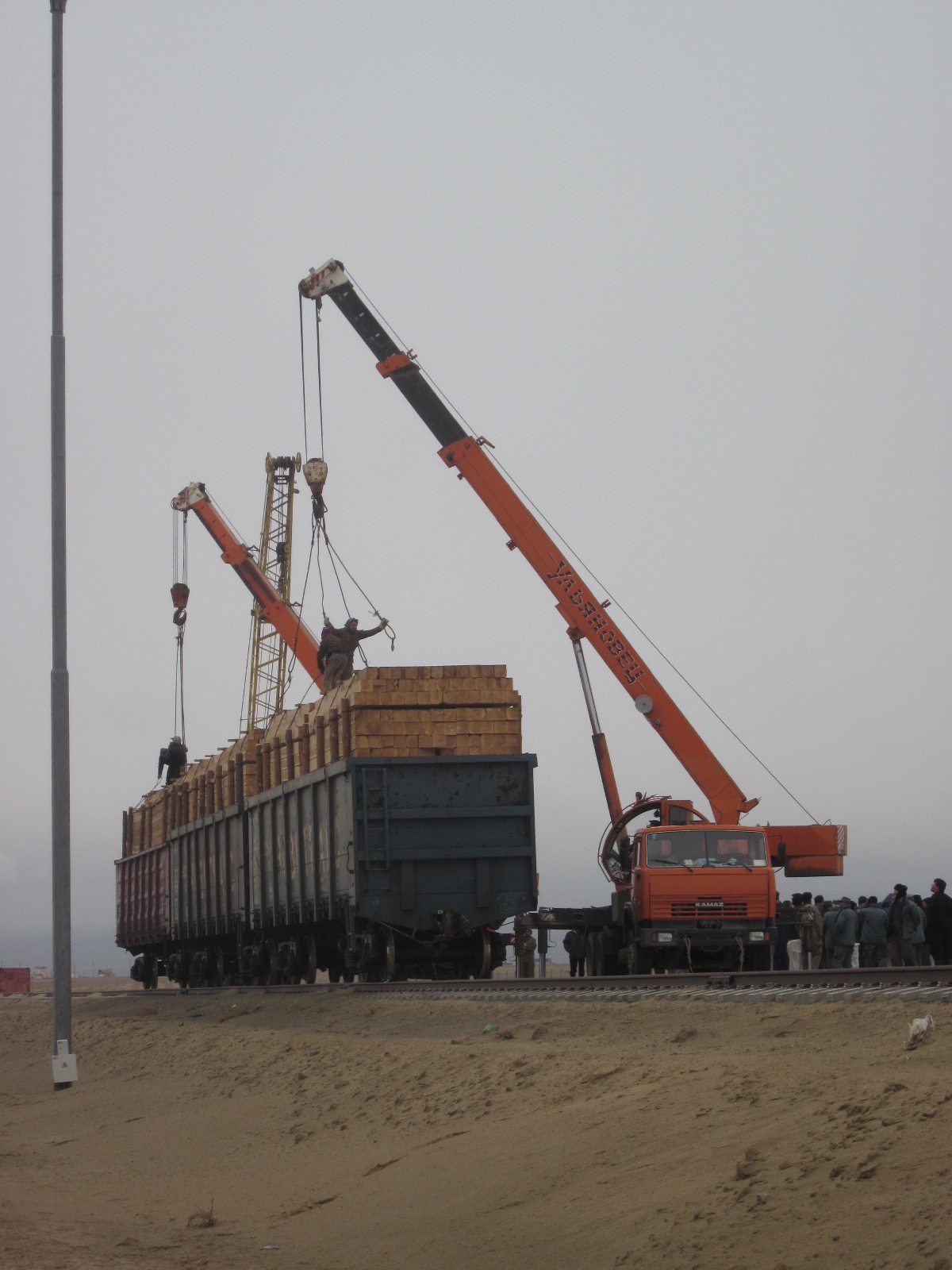Staying on Track
Big Project ME speaks to those involved in the construction of the region’s biggest railway projects to find out what sort of challenges they expect to face, and how they’re ready to overcome them. Gavin Davids reports

The long anticipated railway construction boom in the GCC finally kicked off last year with billions of dollars of major rail project contracts awarded across the region.
Forming a sizable chunk of the $108 billion contracts awarded in 2013, rail seems set to be the region’s most ambitious and exciting project sector for a good while. It is estimated that there are $194 billion worth of rail projects currently underway or in the pipeline.
The first three quarters of 2013 saw more than $30 billion worth of rail construction contracts awarded across the GCC, a staggering jump from the $3.9 billion awarded during the same period in 2012. The reason for this massive jump was the awarding of the $22 billion construction contracts for the Riyadh Metro in June of this year.
Furthermore, when it comes to overland rail, the UAE’s Etihad Rail has been one of the most prominent projects in the region, with the first phase of the project well underway. In fact, the next 12 months will see a surge in railway project activity, with Oman looking to set up its own national railway, while Mecca, Medina and Dammam are all looking to develop metro and light rail networks.
Meanwhile, the Metro Jeddah Company has already announced that the Jeddah Metro will most likely be awarded in the first half of 2015.
This railway activity isn’t limited only to the GCC, with Iraq keen to build up its railway network while working on plans to develop an elevated metro in Baghdad. In addition, there are numerous opportunities in Northern Africa for rail projects, with a high speed railway been Tangiers and Casablanca most prominent amongst them.
As a result of all this rail activity, Big Project ME sat down with a number of railway construction experts to find out just what these projects will mean for the future of the region, both economically and socially.
Given that all the GCC projects will tie up to create a region wide railway network, the need to get all facets of its construction spot on is vital, says Trevor Butcher, Partner – Head of Finance and Projects, at DLA Piper Middle East.
“The 2,177km GCC rail network is set to link all six Gulf states for the first time in history, providing a welcome alternative to air, sea and road for both goods and passengers,” he says.
“This will be a fantastic achievement for the GCC and the wider Middle East as a whole. The complexity of the project should not be underestimated however, with ambitious time frames and numerous developmental and operational challenges remaining to be overcome, such as resolving the aims and priorities as between passenger and freight services and settling the immigration and customs logistics at the many borders that will be crossed.”
“It is imperative that the GCC countries work together to resolve the outstanding challenges if they are to realise the improved efficiency in transportation and logistics that the scheme offers, as well as furthering the vision of a more closely integrated GCC community,” Butcher points out.
Dr Nadhem Bin Taher, the executive director of the National Transport Authority, adds that this cooperation between GCC countries has already begun, with plans for a GCC Railway Authority already in motion, so as to regulate interoperability issues and the connections between each country.
“This has been discussed in the GCC council and will very soon be raised with the GCC supreme council, I don’t have an exact date but this is the plan,” he tells Big Project ME.
“Connecting the whole GCC line and the UAE network, there’s a part that’s around 580km, which is part of our national network. Our national network is around 1,200km, so we’re connecting all these issues together. Saudi Arabia is working on (their railway) right now, Qatar is working, Oman is working and we are working,” Dr Nadhem explains.
“Now we are studying the connection and interoperability issues, immigration issues, trips issues, taxes, and customs, all these issues are studied right now to see how we can go further from this perspective.”
“In order to have a feasible railway industry, you need to take care of all these issues. If you go to Europe, you can take the Euro rail, there are all these issues like customs and immigration, they’ve solved it.”
“So all these will be studied by different departments and the responsible authorities, like the Ministry of Interior, the Ministry of Immigration, the Customs Authority and the National Transport Authority. We’ll work with our colleagues in the GCC to enable the GCC railway to be a good tool for transportation (in the region),” he adds.
Butcher emphasises that for the GCC Railway to work, there will need to be close collaboration and consultation to ensure an alignment of objectives, standards and time frames between the various long range and urban rail projects.
Two men who are intimately involved in the development of these railway systems and their accompanying infrastructure are Joerg Scheifler, CEO of Siemens Infrastructure and Cities, Middle East and Julian Hill, regional managing director, Rail for Atkins.
Scheifler says that one of the biggest issues the region’s rail projects is going to face is meeting their own targeted deadline, which is due to the rate at which work is being completed across the region.
“Basically, from my own perspective, I don’t think they’ll all make it together, by 2018. We are already at 2014. The Saudis are well ahead, the tracks exist already, so I’ll say that they can make it. The UAE is next. Phase one of the network is under construction, so I think they’ll make it too. But others like Oman, Kuwait and Bahrain, or the link to Qatar, I think those will take longer than 2018. But this is understandable. Building a rail network is very complex, and especially in countries where there is no rail history.”
While Julian Hill is slightly more optimistic about the time line for the projects, he stresses that it’s vital for the right level of dialogue and planning to take place now, so as to avoid issues later on.
“From a historical perspective, for a cross border railway, I think the level of coordination and shared vision for the railway, is at a pretty good level. We’re encouraged by the fact that there is a working group to drive things forward and to resolve potential issues at the earliest stage,” he explains to Big Project ME.
“The Kingdom of Saudi Arabia has led the track standardisation (gauge width and axle load), to ensure freight trains can technically move seamlessly between countries. Common clearance envelopes and train control systems will be adopted. Diesel trains have also been adopted with space provisions in the infrastructure for potential electrification in the future,” Hill says.
Of course there are other problems that contractors, consultants and developers will face when it comes to the actual construction of the railways. One major issue is the availability of skilled labour and materials to work on these complex projects.
Given the delicate situation in the Kingdom, thanks to the Nitaqat ruling, and the demand in Qatar and Dubai, ahead of the FIFA World Cup 2022 and Expo 2020 respectively, sourcing skilled labour and materials is going to be vital for the success of these projects, say the experts.
“That’s really an issue,” says Scheifler, “I’m always saying that we’re now living in the decade of rail in the Middle East. We have projects popping up everywhere. We’re talking about the main line projects, but in addition, we have many metro and tram projects coming up. In Saudi we have numerous metro projects, in Qatar we’re in the midst of the tender process. In Abu Dhabi, there are plans for a metro and light rail system as well. All of that falls under the umbrella of rail, and all of that needs expertise. So at the moment, there are a lot of opportunities out there,” he asserts.
“I think this is the most important topic, if you want to do your project successfully. What we’ve done is set up a recruitment programme, which on one hand looks into the whole organisation, as we have projects globally. So we first look internally, where we have expertise available. We recruit from within, but that’s not enough. We also have to approach (people) externally. We have professional recruiting agents (on the case).”
“But I would say that, at the end, the key will be remuneration. You have to offer proper packages to attract the best people. It’s not too complex a task, but one that needs to be taken very seriously.”
Hill points out that the fact that the market is talking about these issues is in itself a positive indication that the situation will be addressed sooner, rather than later.
“As a sector, we’re not just burying our heads in the sand – there’s a huge amount of planning and coordination taking place in order to help mitigate the risk, but it’s really important that we deal with it as an industry,” he says.
“We also need to look beyond rail at all the other major infrastructure activity taking place in the region to see the bigger picture.”





















